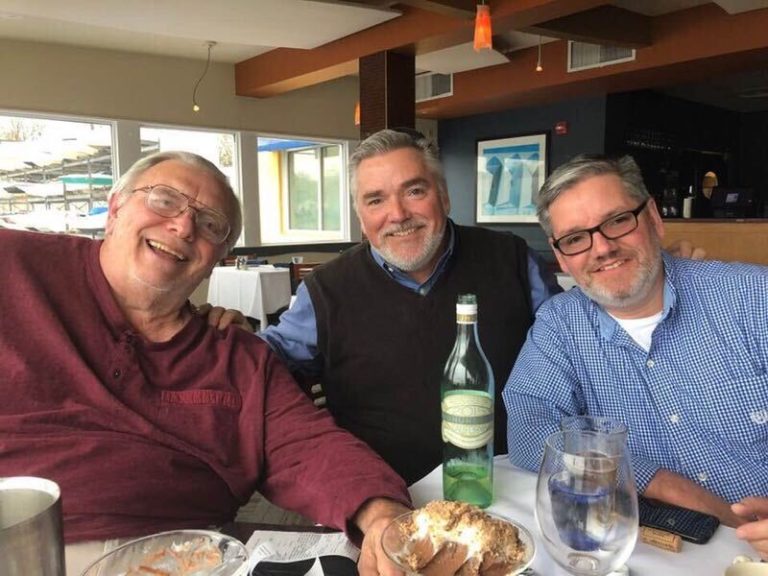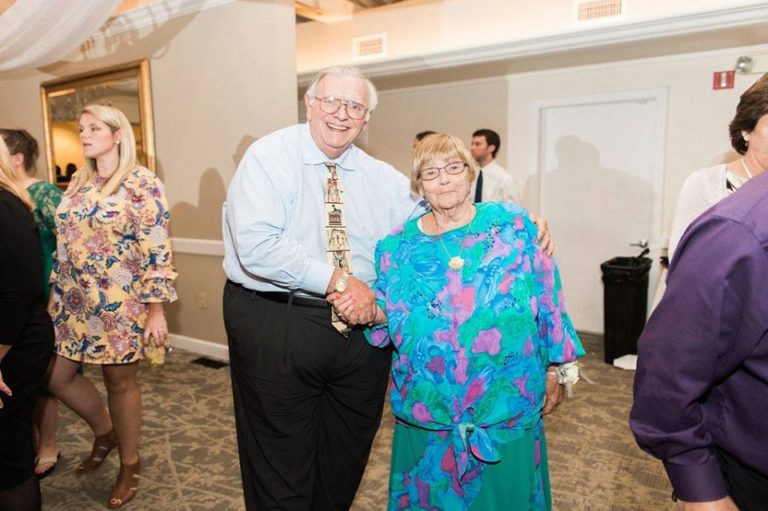About Me

Denis “Pop” Murray, Sr. resides in Crofton, Maryland. He and his high school sweetheart Gayle have been married nearly 60 years, though Gayle now has dementia and lives in a memory care home near Crofton.
Educated at Georgetown (College, ’63; Law, ’67), he practiced law before turning to philosophy. He has studied religion, psychology, science and philosophy for 30 years. His aim is to show a new view of ourselves and our relation to each other, based on gifts in our genetic psychology. This could give us a wisdom that could be accepted worldwide, in spite of our different religions.
He has attended many seminars and conferences over the years, including seminars on Jungian psychology in Washington, New York, Philadelphia, Vermont, and in Italy, and he has completed a one year mentoring program on Jungian psychology under the tutelage of a prominent psychoanalyst and author. He has attended seminars on psychological type many times, including Kansas City, Richmond, and Phoenix. He has presented his work in Jungian workshops at Roundtable Associates, in Media, PA. He has also presented his work at the Association for Psychological Type conference in Phoenix. And he has presented his work at the Realia Conference of philosophers in Portland, Maine. He has written continuously over the years, and began publishing his work in 2009.

Pop's Philosophy
“When I was 11 I became aware that my parents and teachers were upset about the effect of Darwin on the story of Adam and Eve in Genesis. They had grown up in a time when most children in Western Civilization were told about Adam and Eve by their parents as a literally true story, and to have to accept that it was not literally true meant that a pillar of civilization was removed.
I never forgot their upset, and when I began to write philosophy I soon turned to that story as a place to begin. I looked to religion and psychology for my ideas, instead of philosophy, because too much of philosophy was about fine points of logic, rather than about the mytho-poetic sources of philosophy. I knew from the psychology of Carl Jung that civilizations need good source stories in order to thrive, and I was determined to find a new pillar, though one based on philosophy instead of holy scripture.
I soon began to see Adam and Eve as a story about how a good God could allow death, hate, necessity and unfairness to exist. People believed in a good God and were upset about these things seeming to contradict God’s goodness or power. The drama of the story is deeper than the apple, it is that God had created the world without death, hate, necessity or unfairness in it, and then had added these to the world as a stern but fair punishment for the transgression of his command. In other words, these things are our fault, so God is off the hook. It was a brilliant story, and it worked as a pillar of civilization for three thousand years.
So I focused on finding a modern explanation of death, hate, necessity and unfairness, and I was able to explain that they are actually not curses or punishments, but part of our gifts, along with life and each other. Death gives us contrast to life, so that we can see how precious life is. Hate gives us choice, so that our decision to hope or hate matters, and makes us participants in our lives, not mere robots. Necessity leads us to each other, because we more often meet necessity when we work together. And unfairness gives us the insight that we care deeply about each other, because we are deeply upset when we see someone suffer a hard blow of unfairness.
All of my philosophy is built around this new pillar, that we have more gifts than we realized so that our gifts are adequate to our needs. I just keep trying to find better words and phrases to show it and to develop what it means and how to carry it out, so that we can gain for ourselves and each other a sense of a life well-lived.”